Argentina, 1985 is inspired by the true story of public prosecutors Julio Strassera and Luis Moreno Ocampo, who dared to investigate and prosecute Argentina’s bloodiest military dictatorship in 1985. Undeterred by the military’s still considerable influence within their fragile new democracy, Strassera and Moreno Ocampo assembled a young legal team of unlikely heroes for their David-vs-Goliath battle. Under constant threat to themselves and their families, they raced against time to bring justice to the victims of the military junta.
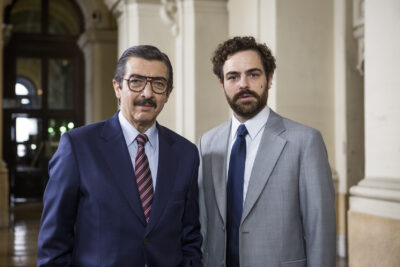
The journey to making Argentina, 1985 began with a meeting of two old friends. Director Santiago Mitre and producer Axel Kuschevatzky are long-time creative collaborators, on films including Paulina (2015) and The Summit (La Cordillera) (2017). Argentina, 1985 was devised while discussing their love of cinema. “We love to pick each other’s brains,” says Kuschevatzky. “We were sitting in a bar in Buenos Aires having a conversation about movies we adore. We were talking about political thrillers we love, like All The President’s Men or Judgment At Nuremburg. We wondered why there was no equivalent in Argentina. We talked about what might be the subject of such a film. Santi said, ‘It has to be the Trial of the Juntas.’”
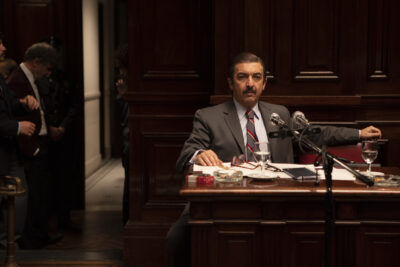
The Trial of the Juntas was one of the most seismic moments in Argentinian history. During the dictatorship of the Proceso de Reorganización Nacional, from 1976 to 1983, Argentina was ruled by a pitiless military government. The country lived in a state of terror, with supposed enemies of the government tortured, killed or ‘disappeared’ on an unimaginable scale. In 1985, two years after the government had collapsed and democracy had been tentatively restored, nine of the former military leaders were tried for war crimes. The Trial of the Juntas was the largest such case since the Nüremberg Trials. Securing a judgement against the dictators seemed close to impossible given how much power they still wielded.
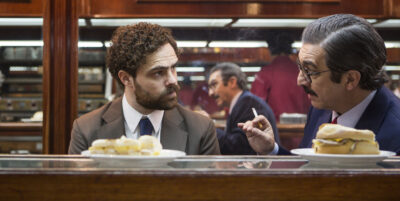
Trying the case fell to veteran public prosecutor Julio Strassera and a young and eager deputy, Luis Moreno Ocampo. With few people willing to assist on a surely unwinnable case, they had no choice but to gather a team of very young, very inexperienced assistants. As much as the majority of the country wanted them to succeed, they had little faith in their
chances. The trial last five months, during which time 833 witnesses gave their testimony. The country was on a knife-edge through the trial. Strassera and Moreno Ocampo received multiple death threats. Bomb threats were regularly made and several bombs were detonated at government buildings. It was an extremely dangerous time. Despite all the odds stacked against them, Strassera and Moreno Ocampo never gave up. It was a story with all the makings of a political thriller.
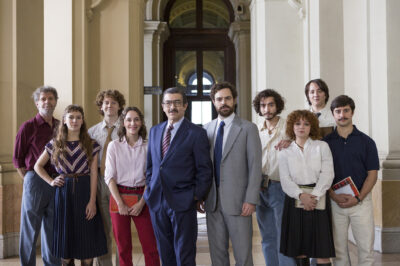
“This was an event that had a big impact on my family,” says Mitre, who was just five years old when the trial took place. “My mother worked in the justice system her whole life. Beyond that, it had a huge impact on me as an Argentinian and the way I see my country. I’ve always wanted to tell this story. These were just ordinary men doing their jobs in the best way they could. It’s a story about how regular people can change society.”
Mitre also saw that this story had a lot of relevance today. While it’s about a specific time in Argentina, this inspiring tale of people fighting back against oppressive leaders, and fighting for democracy, will resonate with audiences everywhere. The story of Argentina in 1985 has many echoes in what’s happening around the globe right now. “This is a story that speaks to Argentinians, but it will speak to people anywhere in the world,” says Mitre. “Strassera achieved this extraordinary thing for Argentina, which also sent a message about justice to people all over the world.”
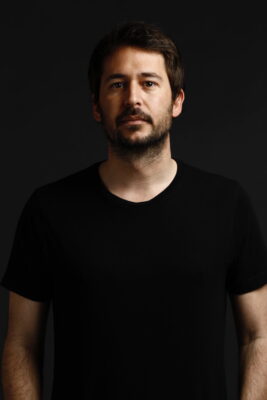
“Accountability is a big issue in the world right now,” says Kuschevatzky. “This is a film about people in power being held accountable.” With such a rich historical story and such contemporary resonance, both Mitre and Kuschevatzky were surprised they were the first to bring The Trial Of The Juntas to film. “We wondered why nobody had made this story before,” says Kuschevatzky. “It’s like a superhero film. These are everyday guys who are facing a seemingly insurmountable force. It’s a very complex story and it’s a period piece, which brings extra complications, so we knew it was going to be a challenge, but it is such an amazing story that we knew we had to make it.” Neither man realised quite how much of a challenge, and quite how rewarding, it was going to be.
